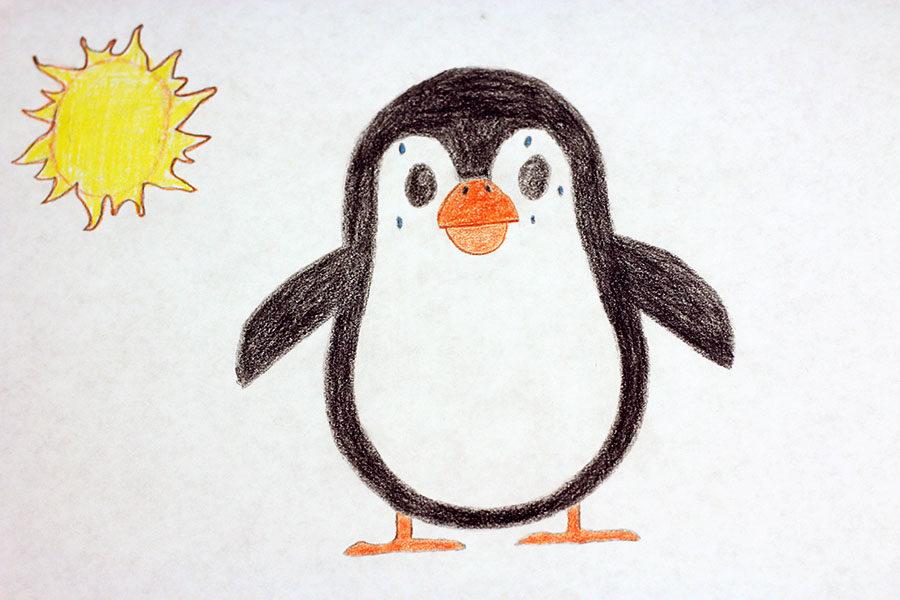Column: Help the happy feet
Penguin Awareness Day sheds light on potential dire situation
Penguins, scientifically known as Spheniscidae are aquatic, flightless birds mainly living in the Southern Hemisphere. These cute birds are highly adapted for life in the water and mostly feed on fish, krill, squid and other forms of sea life they catch underwater. Penguins spend 80 percent of their lives in the ocean, but what happens when the place they need the most is being destroyed?
The penguin has no natural land-based predator, but their greatest threat is the climate change. The climate is changing rapidly and affecting many ecosystems; among the list of endangered species struggling are the penguins.
These birds are losing their homes due to the increased water levels and rely on the cold weather and water for survival. Among these are the Galapagos penguins who live north of the equator. These penguins depend on the ocean currents that carry cold water and nutrients.
Climate changes will affect nesting sites greatly. With climate change, the penguins are losing their habitats. Temperatures are becoming warmer and ice layers are quickly melting, making ice thinner. Antarctica’s natural climate pattern is cold, dry and harsh. The warming temperatures could bring in unprecedented rain or the melting of snow, both creating puddles of water. Eggs laid on the ground will have trouble hatching due to the unsafe water.
Not only does climate change affect the land but it also affects food availability. Fish are one of the main sources of food for penguins, however, the fish population has decreased drastically, creating a scarce supply for penguins. Though fish have more nutrients, penguins are forced to rely on krill for their diets.
Overfishing has also become a problem for penguin diets. It causes penguins to have to swim farther away, becoming more vulnerable to their sea predators. Getting something to eat has become extremely difficult. Poorly fed penguins become more vulnerable to diseases.
Throughout the years, the penguin population has decreased by half. If the world continues to ignore what is going in nature, the planet could eventually end up losing the animals that inhabit it. Human beings have the option to do something to help.
Although, there is a silver lining. A study done by oceanographer Megan Cimino has discovered there are several refugia locations where penguins can continue to strive. Climate refugia are safe-haven locations for the penguins.
Many organizations work to help improve the way of living for not only the penguins but all of the arctic animals. Help celebrate Penguin Awareness Day on Jan. 20 by visiting an organization page to learn how help the arctic wildlife.













